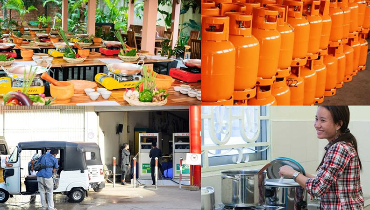KHAN Donira
Research Associate
Donira joins CDRI in late 2022 as a research associate in the Center for Natural Resource and Environment. He has research interests in farming systems, agricultural innovation, supply chains, resources, and environmental and circular economics. He holds a double master’s degree in Agricultural and Resource Economics from Kasetsart University in Thailand and Market, Organization, Quality, Service and Policy in Southern Agriculture from Montpellier in France.


Migration forces rural people to find more and better jobs, which is key in generating incomes to sustain livelihoods and ensure food security in times of environmental change. In addition to agricultural production, climate change affects health, water, and energy resources and causes migration and conflict. The impacts of climate change on me...

Cambodia’s susceptibility to climate change is heightened by its limited ability to adapt. Women experience more pronounced consequences from climate change than men. As Cambodia strives to achieve carbon neutrality by 2050 amidst mounting climate uncertainties, it becomes crucial to examine the effects of this transition on women’s livelihoods and...

Links between climate change and migration in Cambodia need to be empirically substantiated. It is known that climate change poses a threat to agricultural production and impacts men and women in different ways in terms of a shift in employment, access to resources and assets, social norms and gender stereotypes, socioeconomic opportunities, and ad...

In Cambodia, the source of fuel for households from liquefied petroleum gas (LGP) accounts for 56 per cent of urban settlements and 11 percent of rural residents, and it ranks second after firewood and charcoal. The source of electricity used by households countrywide is quite small at only about 3 per cent. The demand for LPG consumption is predic...
